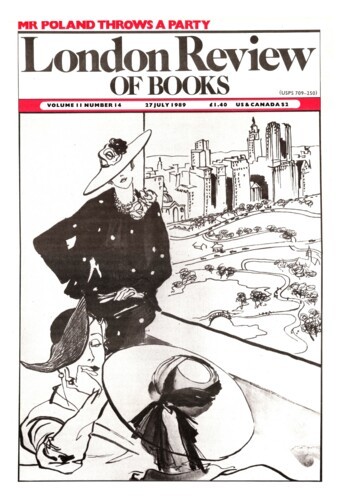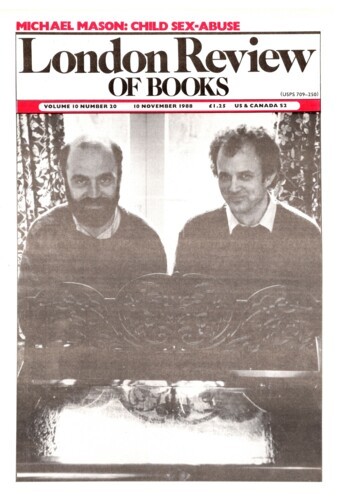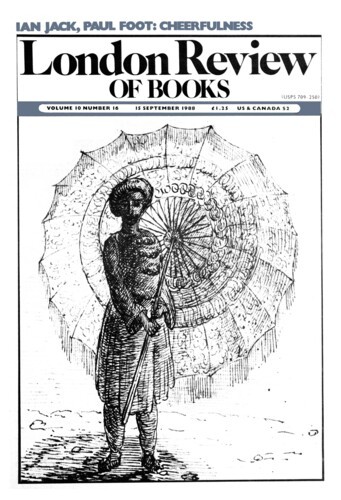Goodness me
Mary-Kay Wilmers, 26 October 1989
Mrs Thatcher, like Hedda Gabler, thinks of herself as her father’s daughter. For a hero, Alderman Roberts may be lacking in style. ‘A cautious, thrifty fellow’ is how Hugo Young describes him and it’s easy to tell he isn’t impressed. But Alfred Roberts was an imposing figure in Grantham and his businesses worked at a time when a great many failed. What we chiefly know of his wife, the elusive Beatrice, is that her daughter wishes her not to be known at all. Young calls Mrs Roberts ‘a practical downtrodden woman’, and in a photograph taken at a Rotarian dinner she is said to be ‘shy and dour-faced’. Mrs Thatcher may have gone too far in excluding the customary reference to her mother from the account of herself that she gives in Who’s Who, but the Prime Minister always goes too far. Only a Freudian committed to the notion that – in the home and in the House – women are nature’s Wets would fail to see why the young Margaret Roberts should have decided that her future depended on not taking after her mother. Leo Abse, however, is a Freudian of precisely that kind.’




